RPG’s are my bag, baby. I easily rank Skyrim, Baldurs Gate and Mass Effect among my favourite games of all time. Whilst I’ve never bragged to be the best player in the world, I thoroughly enjoy playing games which give you the freedom to construct your own battle style and your own character through not just initial customisation, but through choices and actions. I’ve also enjoyed the way in which many games have started to throw away this notion of class-based systems and embraced free-form character development.
Obsidian Entertainment has long been one of my favourite RPG development houses, having been involved in the development of Baldurs Gate, Neverwinter Nights, Fallout: New Vegas and South Park: The Stick of Truth. It was only last year that I was blown away by their stunning return to the CRPG genre, with Pillars of Eternity. A spiritual successor to Baldurs Gate, it was Lauded by critics and signalled a return to form for the company after years of financial troubles.

Tyranny is, in some ways, a continuation of the work they started with PoE, and after some time spent with this different take on CRPGs I’m excited at where the Genre could be heading.
The first thing to know is that this is a distinctly different type of CRPG than those you may have played before. The majority set you up as an unwitting protagonist fighting against evil, but in Tyranny, evil has already won, and you work for it.
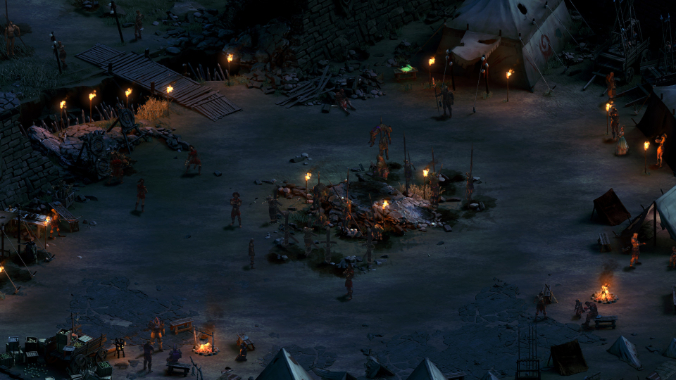
Set shortly after the conquest of the Tiers; the final region of the world to resist your overlord, Kyros, Tyranny has you playing the role of a Fatebinder; one of Kyros’ most loyal and powerful minions. Sent to end a conflict between two of Kyros’ armies and put down a rebellion, you are immediately embroiled in a battle for survival and a series of unexpected events. Whilst avoiding spoilers, your loyalties will be tested as you journey through the high fantasy world of Terratus.
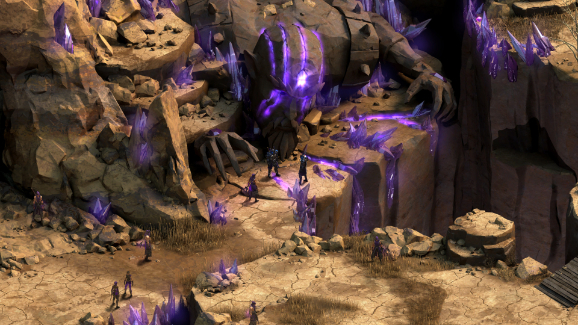
The themes on offer change the stakes distinctly, and you’re subtly prodded from the start to truly take on the role of an agent of evil. Granted, you don’t always have to stick to that traditional evil role, and at times you may SEEM to be doing the right thing, but no matter what you will play a character whose past is full of dark deeds. Many of these deeds are in fact chosen by the player in the opening section, described as conquest, which details the events of the previous two years. Surprisingly, the choices you make matter, as many characters and factions will remember them. This gives your character a surprising amount of depth from the word go and helps you to feel immersed in the world. Choices in general feel meaningful throughout the campaign, which is a nice change from what you often find in other games, but it is often the choice between doing something evil and doing something else which could also be construed as even more evil. Your standing in the world is determined by your reputation with each faction and character, and throughout the game you accrue Loyalty and Fear for each, which also unlock special abilities to be used on the battlefield.
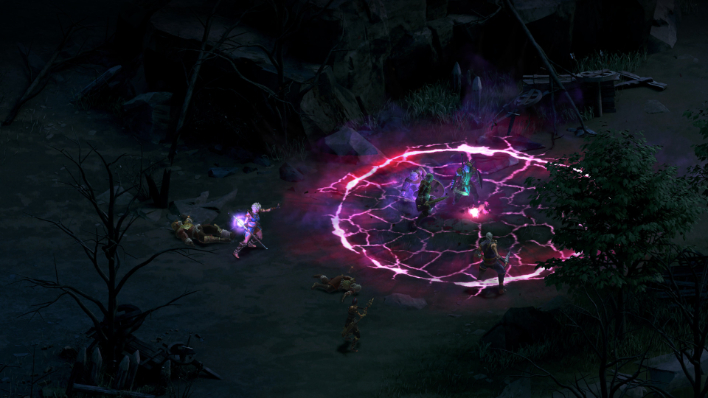
Companions are just as varied and interesting as they are in any other Obsidian game; from the chaotic and violent Verse to the calm and comedic witch Eb, they all have heaps of personality and interesting dialogue. A particular favourite of mine is the Archon Sirin, whose backstory are simultaneously gripping and tragic. As you get to know the characters, they will slowly reveal more about themselves, which can be motivation enough to respond to situations in ways they will approve of. What’s also nice is the fact that not all of them are distinctly evil characters, with some merely trying to survive in a screwed-up world.
The gameplay is pretty similar to PoE, with a few noticeable changes. The combat and movement mechanics are relatively unaltered, taking what was good about the predecessor and improving on the bad. Combat feels powerful and streamlined, with battles continuing to be enjoyable until the end of the 20-30 hour campaign, although I can imagine some stalwarts may be disappointed with this simplification. Your party size has been reduced from PoE’s 6 to 4, and there is no friendly fire option.

Another change I appreciate – which many may not – is the stripping down and streamlining of classes and abilities. Tyranny has no classes, but you do have the chance to choose two starting fighting styles which help shape your overall development. Your skills are also combined into fewer categories which grow as you use them, which again, is something I like. In some ways, you could make a comparison to Oblivion and Skyrim; whilst technically Oblivion was deeper, Skyrim was more inviting and an overall easier game to get into. You’re allowed to make some mistakes and allowed much more flexibility when building your character. It’s going to prove divisive, but I’d call it a net positive.
They’ve even managed to include some distinctly new features, like a spell-crafting system; allowing experimentation with different kinds of energy, how they’re projected and a variety of modifiers. It’s a straightforward and satisfying system which doesn’t restrict magic to just the mages, allowing flexibility in your party makeup.
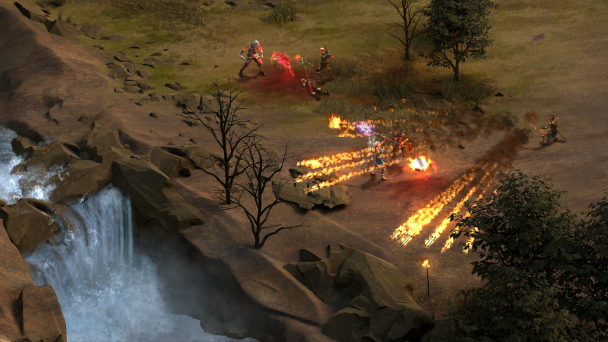
Graphically, Tyranny is a definite step up, as the interface has been improved and streamlined, models look refined and clean and the hand-drawn backgrounds have never looked quite so good. The world building is excellent, as is to be expected from Obsidian, with each area of the world having its own distinct look and feel. Music is on point, maintaining a solidly dark, ominous feel which is fitting to the subject matter, whilst the vocal performances in key story moments are generally great, with only a couple of characters falling flat.
Overall, Tyranny is a fun, interesting CRPG which mixes complicated moral dilemmas with time-tested mechanics, a deeply built world and a refined interface. There’s an excellent, if somewhat morbid story to be found, full of interesting twists, turns and characters. It doesn’t outstay it’s welcome, respecting your time as a player whilst also providing enough depth to keep it engrossing. Whilst some may argue that it’s too streamlined in comparison to its predecessor, the refined mechanics and interface make it a much more welcoming experience than others in the same genre, even if the subject matter is much darker. If you’re a fan of story-based CRPGs and don’t mind the fact it won’t last 100 hours, you’ll probably find a lot to love in Tyranny.

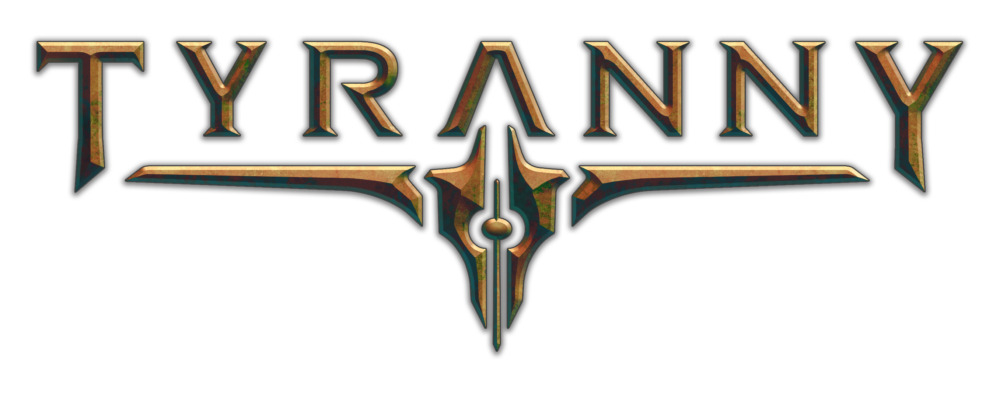







You must be logged in to post a comment.